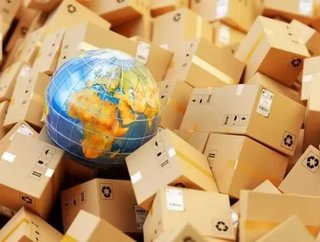Automation, robots and A.I: The rise of the supply chain machines

Complex global supply chains are increasingly relying on automation, robots and A.I. to reduce waste, lower cost, and, most importantly, boost innovation
Not a day goes by without a headline about Uber’s autonomous vehicles or players in the shipping and logistics space like DHL or Clearpath announcing drones and warehouse robots. These modern marvels along with new information technologies such as artificial intelligence (AI) and the Internet of Things (IoT) are steadily transforming global supply chains. They’re producing streams of real-time data and insights that will reface how supply chains are designed and managed.
While these supply chain robots aren’t really here to put humans out of work, in addition to the step change improvement in supply chain operations and management, they’ll also help to reduce much of drudgery that humans encounter from manual, monotonous processing.
The automation changeover is already evident across most industries. The world now includes 1.1 million working robots. About 80% of the work in manufacturing a car is allocated to robots. As robotics and the aforementioned emerging tech become commonplace, supply chain executives will no longer be solely concerned with the traditional ERP upgrade or supplier master data review, but will need to increasingly spend more time figuring out how to handle the brave new world of exponential data. Think of it as the data supply chain itself growing exponentially.
Progressive leaders who are able to quickly utilize new technology will see transformative results. If you look at AI and machine learning for instance, they really shine when you have a lot of data from many different domains. It would take a long time for a person to make sense of all of that data and bring it into a consistent form before it can be analysed. Machine learning algorithms can help supply chain operations by finding patterns or anomalies in order and other procurement data to better forecast sales predictions. By combining machine learning and data from sensors across supply chains, the resultant insights can improve sourcing, production, logistics, supplier information management, direct materials, product development, and even marketing. Platforms and networks can connect all of this data with business processes to drive efficiency and new offerings and business models.
Creating this new supply chain reality comes at cost. More robust IoT security, interoperability, and more universal interfaces to the cloud will be needed. Information needs to be stored in a way so that third parties can process it. Nobody is able to crack the Big Data challenge on their own.
Nonetheless, the impact of these emerging technologies on procurement and the supply chain is both revolutionary and redefining. According to the WEF, by 2022, 1 trillion sensors will be connected to the internet, unleashing a torrent of data. Internet of things will give supply chain professionals even greater visibility and accuracy to pinpoint potential issues throughout supply chain processes.
Leaders in supply chain, sourcing and procurement should prepare their processes and infrastructure to embrace new technology and their ability to harness more data than ever before. By using technology such as machine learning, A.I. and IoT to improve supply chain transparency, leaders in the back office are able to drive product excellence, accelerate time to market, and develop new products and services.
The future of business belongs to companies that are able to adapt to the accelerated change in sourcing, production, and distribution that we are witnessing today and those that are able to really take advantage of these new sources of information.
By Vishal Patel, Director, Solutions Marketing, Tradeshift
Supply Chain Digital's November issue is now live.
Follow @SupplyChainD on Twitter.






